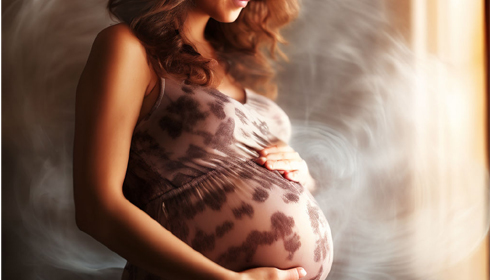
Vitamin D during pregnancy strengthens children's bones even at the age of seven, say researchers
Children whose mothers took vitamin D supplements during pregnancy have stronger bones long into childhood, according to a new study from the University of Southampton and University Hospital Southampton. The study, published in The American Journal of Clinical Nutrition, found that these youngsters, at the age of seven, have higher bone mineral density than their peers due to the increased calcium and other minerals in their bones. This increase in bone density lowers the likelihood of fractures and other bone-related problems later in life.
"Our findings show that the benefits of vitamin D supplementation during pregnancy persist into mid-childhood," said Dr. Rebecca Moon, an NIHR Clinical Lecturer in Child Health at the University of Southampton and the study's lead author. "This early intervention is an important public health strategy." It improves children's bones and lowers their chances of developing osteoporosis and fractures later in life.
Vitamin D regulates calcium and phosphate levels in the body, which are crucial for bone, tooth, and muscle health. The MAVIDOS experiment included over 1,000 pregnant women recruited from Southampton, Oxford, and Sheffield in 2009. We divided these ladies into two groups: one received 1,000 International Units (IU) of vitamin D each day, while the other received a placebo. Neither the women nor their doctors knew which group they were in.
Previous research from the MAVIDOS study found that at age four, children delivered to mothers who had taken vitamin D had stronger bones than those whose mothers had taken a placebo. This current study, which followed up with 454 children aged six to seven, found that the favorable impacts on bone density lasted well into middle childhood.
Professor Nicholas Harvey, director of the university's MRC Lifecourse Epidemiology Center and project leader, emphasized the significance of these findings: "These findings contribute to the significant knowledge acquired by the MAVIDOS experiment." We express our heartfelt gratitude to all the mothers and children involved. Their contributions have improved our understanding of vitamin D supplementation and its function in maintaining strong and healthy bones."
The UK now frequently encourages pregnant women to take vitamin D supplements, and this study confirms the importance of this advice. The MAVIDOS experiment found that, in addition to bone health, vitamin D has other benefits during pregnancy. In 2018, researchers discovered that supplementation could impact gene activity associated with vitamin D pathways. A 2022 study suggested that vitamin D supplementation during pregnancy could lessen the risk of atopic eczema in infants.
Versus Arthritis, the Medical Research Council, the National Institute for Health and Care Research, and the Bupa Foundation all provided funding for the MAVIDOS study. As researchers continue to learn about the benefits of vitamin D supplementation, this experiment emphasizes its importance as a public health tool to promote long-term health, from pregnancy to infancy.